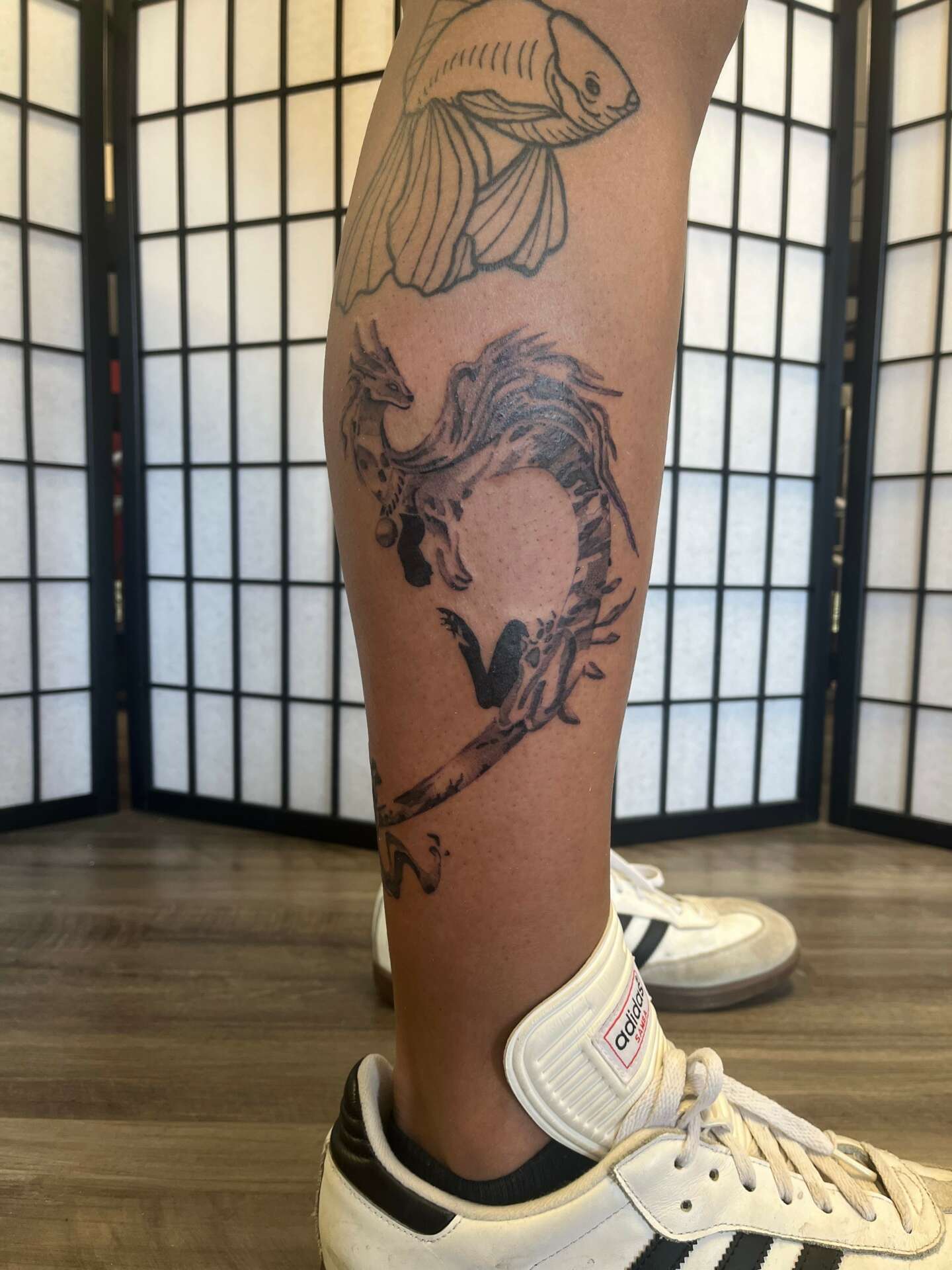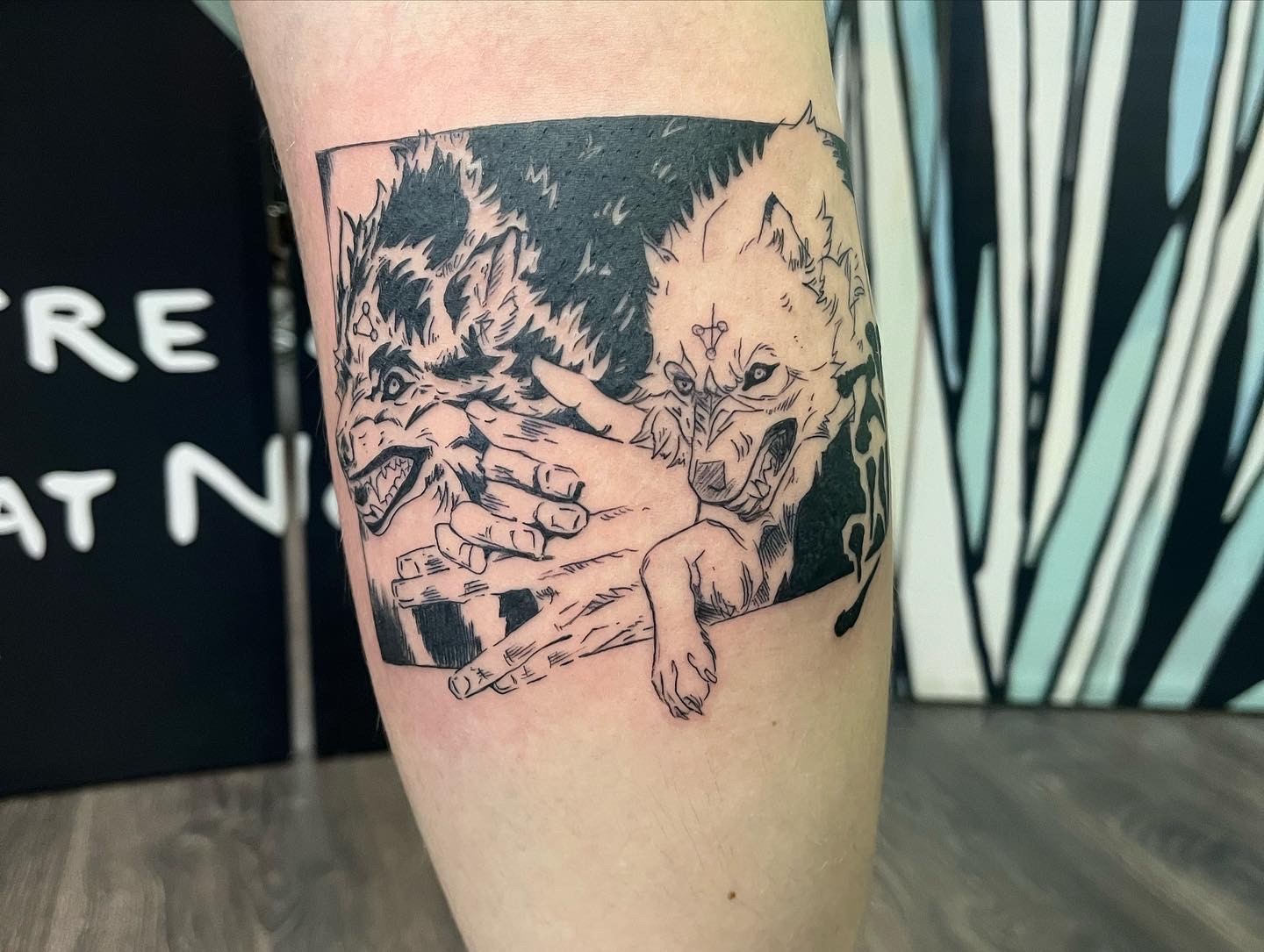Alright – so today we’ve got the honor of introducing you to Hannah Pedersen. We think you’ll enjoy our conversation, we’ve shared it below.
Alright, Hannah thanks for taking the time to share your stories and insights with us today. Can you talk to us about a project that’s meant a lot to you?
I’ve always wanted to do art in some way, shape or form. I’ve been drawing or doing creative projects since I was little, and knowing now that I’m neurodivergent, it makes a lot of sense. Being creative went hand in hand with ADHD in being able to entertain myself, and I would have hyperfixations on many different art forms.
I went to GVSU for art and psychology, thinking I would go on to do either behavioral analysis or art therapy. I had started wanting to go into criminal psychology (with behavioral analysis) but my physical disability meant I could not get into that field. Art therapy required a masters and at the time I didn’t have the financial means to be able to complete that.
For years afterwards I did art as a side job and hobby, jumping from printmaking, to wood burning, to perler beads, knitting and crochet, you name it. If I could hyper focus, I would. Art became an escape for me, a way of coping with my PTSD as well.
It was when I met Sarah (sun.medicine on IG) who co-owns Balm tattooing in Grand Rapids and I saw how she ran her business that I knew I could combine my love of psychology, art and helping people just like she did.
There’s a large gap in the tattoo industry that provides services to people who are disabled or neurodivergent, or just people who need accommodations in general, and I’ve felt that, being a neurodivergent, disabled, queer person.
I went to trauma informed trainings, domestic violence trainings, used my college education and bounced things off of my wife who is a therapist to make sure I was offering accommodations and making my services as accessible as possible.
When Rowan (basil_teeth on IG) and I opened our own shop, we really wanted to focus on being accessible and as welcoming as possible, because we had heard from clients how hard that was to find, and how needed and appreciated it was.
Our biggest must haves when we were looking for a location was that it was 100% accessible. Not just getting into the building, but parking, elevators, all doors were wide enough, the bathrooms were wheelchair accessible, all of it. We made sure when we bought furniture to take into consideration different accessibility needs, as well as comfort for different body types and sizes.
We keep local resources stocked in the front of the shop, have fidget toys, stock sanitary supplies in the bathroom that are free to take, as well as we’re all trained on Narcan and have fentanyl testing strips for free in shop. Our training goes through making sure people feel comfortable, we are taking into consideration peoples histories, and we even have a private room if needed.
I personally stick to one client a day so I can really focus on them, am not worried about time constraints so if they need breaks we aren’t rushing, and we have snacks and drinks available free as well and send people home with care packages.
We really focused on making our shop as accommodating and accepting as possible, and any time I get a message on Instagram or hear someone tell me how much all of it means, or that they notice the little things we do like posting a video of our space online so people know what to expect, it lets me know we are doing the right thing.
It really seems like something that should just be common, but unfortunately there are still a lot of “old school” shops and practices, and marginalized people get left out.
It breaks my heart when I hear that someone went to another shop and was turned away, and for horrible reasons. Things like they were too heavy to tattoo, or they couldn’t gain access to the shop for mobility reasons, that the artist refused to work with scarring on someone’s skin, or even that someone had the “wrong” skin tone for color work.
That is why this means so much to me, and I advocate to other shops and try to educate clients so they know what they deserve and should come to expect. Accessibility shouldn’t be a chore people are required to do, it should just be a given, and so often it isn’t.
I want to continue to learn, to grow, and to make sure I’m helping the movement in the tattoo industry shift into something accommodating and better, because this really has become a passion project of mine. I never expected this is where I would have ended up, but I can’t imagine doing anything else now. It holds a very special place in my heart.


Awesome – so before we get into the rest of our questions, can you briefly introduce yourself to our readers.
My name is Hannah, I’m a queer, neurodivergent disabled tattoo artist. I’m relatively new to the tattoo industry, April 2024 will be my second year, so I still feel like a baby!
My strong focus is providing accessible and trauma informed tattoo services to all, but largely with those who have been left out or marginalized within the tattoo realm.
I love hearing about clients art ideas and what they want to work on, and while I love bold color pieces or something similar to printmaking – I’m often told I’m an art chameleon and can work in a variety of styles!
I’m a huge nerd, and used to work comic con circuits before getting into tattooing, and even if it’s not something I’ve watch/read/played etc. I will always be down to listen and engage with clients on anything nerdy. (Though honestly I make friends with most people and will talk to pretty much anyone about anything!)
I’m a little weird and I love that about myself, sometimes I’ll sing or make voices while tattooing, and I’m sure people will say I’ve done dorky and kooky things, but hey! They keep coming back and people love my authentic weird self, so I’m going to keep on doing me!


We’d love to hear a story of resilience from your journey.
I’m currently 31 years old, and I restarted my entire career and life at 29. I know 31 isn’t old, but I feel like there is such a pressure to have your whole life figured out by time you are in college and to have a career when you leave.
I was in an abusive relationship/marriage for nearly 10 years, and through that, art was always an escape for me. Something I could dive into and forget about reality for a while. In 2019 I made the jump and left. I didn’t have much, I moved everything in a day to a small apartment, didn’t even have a couch and sat in camping chairs in the living room for months. I came out as queer, and now, four years later, I’m a tattoo artist, a shop owner, I have a wonderful loving partner and I couldn’t imagine my life without her, and I’ve come so far.
I restarted my life at 29, a whole new career by 30 and yeah, it was hard, I still have plenty of scars, but I think it’s through that I can say, you’re never too old to try something new, to start over, and while it may not be easy, it’s so worth it. Now that history really helps me and drives my passion for helping others, and I’m so thankful for the support and community I had when I found myself.


For you, what’s the most rewarding aspect of being a creative?
A big part of tattooing is being able to change/reclaim your body or your self image. Being able to see people talk about how they feel better about themselves, about what they see in the mirror, to cover old scars both physical and mental with art, it’s so rewarding. It really is one of the things that makes me tear up, knowing I helped them, that I was a part of that.
I know it’s been that way for me, but being able to help someone in their healing journey, or to see their confidence boost because of what I worked with them on, I can’t even describe how that makes me feel.


Contact Info:
- Instagram: Comic_hans
- Facebook: Comic Hans
- Other: Ravens Rookery Tattoo Emporium – my shop (also Ravens_Rookery on IG)
Image Credits
Peculiar_perspectivez


